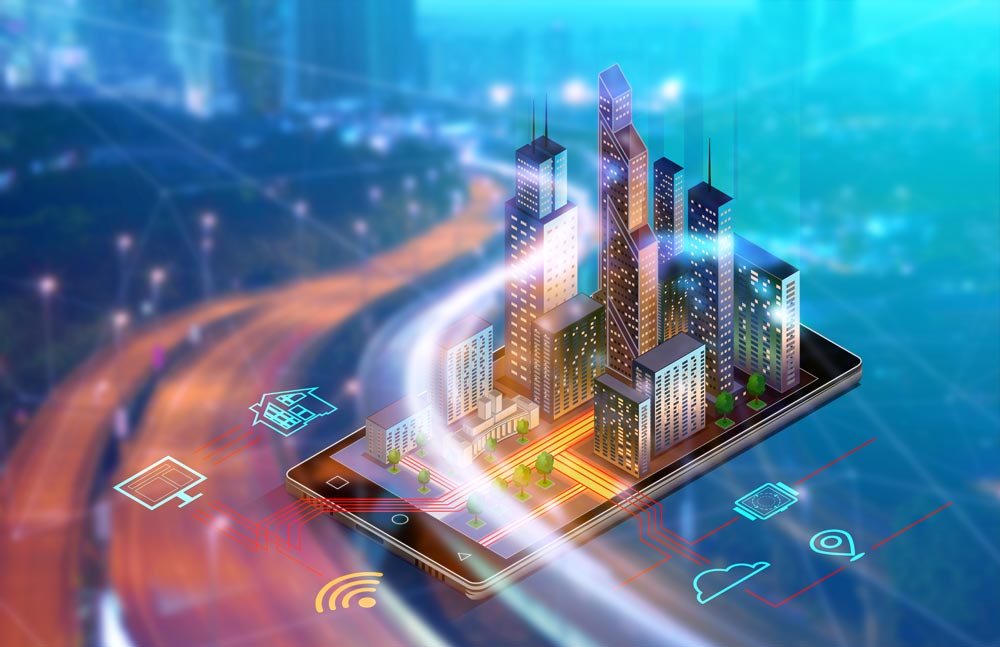In today’s rapidly urbanizing world, the concept of smart cities has emerged as a revolutionary approach to enhancing urban life. Smart city initiatives leverage advanced technologies and data-driven solutions to address the pressing challenges faced by modern urban areas, including congestion, pollution, and inefficient resource management.
By integrating innovative infrastructure and services, these initiatives aim to create more sustainable, efficient, and livable environments for residents. This article explores the profound impact of smart city initiatives on modern urban life, highlighting their benefits and the challenges they present.
Introduction
Smart cities represent a transformative vision for urban environments, utilizing cutting-edge technologies and data analytics to enhance the quality of life for residents. These cities are characterized by the integration of Internet of Things (IoT) devices, smart infrastructure, and efficient resource management systems. As urban populations continue to swell, with an estimated 68% expected to live in cities by 2050, smart city initiatives have become essential.
They address critical issues such as traffic congestion, environmental degradation, and public safety, all exacerbated by rapid urbanization and climate change. By fostering sustainability and resilience, these initiatives pave the way for more livable urban spaces.

Key elements of smart city initiatives
Smart city initiatives encompass several key elements that work together to enhance urban living.
- Information and communication technology (ICT): Central to smart cities, ICT involves the deployment of IoT devices, sensors, and data analytics to collect and manage information in real time, facilitating informed decision-making.
- Intelligent transportation systems: These systems utilize data to optimize traffic flow, improve public transportation, and reduce congestion, ultimately enhancing mobility for residents.
- Energy and resource management: Smart cities focus on integrating renewable energy sources and implementing smart grid technology to promote efficient energy consumption and sustainability.
By focusing on these key elements, smart city initiatives aim to create urban environments that are not only more efficient but also more responsive to the needs of their inhabitants.
Benefits of smart city initiatives
Smart city initiatives offer numerous benefits that significantly enhance urban living:
- Improved quality of life: By integrating technology into daily services, residents experience enhanced public services, including healthcare, education, and safety.
- Increased efficiency: Data-driven management leads to optimized resource allocation, reducing waste and operational costs.
- Environmental sustainability: Smart cities promote the use of renewable energy and sustainable practices, contributing to reduced pollution and a smaller carbon footprint.
- Enhanced mobility: Intelligent transportation systems improve traffic flow and public transport, reducing congestion and travel times.
- Community engagement: Smart initiatives encourage citizen participation in governance and decision-making, fostering a sense of community and belonging.
Exemplary case studies
Examining exemplary case studies of smart city initiatives reveals how various cities tackle urban challenges with innovative solutions. These real-world examples highlight the strategies and outcomes of smart city projects, demonstrating their potential to enhance urban living and improve quality of life. In this section, we will explore notable case studies that showcase successful implementations and valuable lessons learned.
- Barcelona, Spain: Known for its smart city initiatives, Barcelona utilizes IoT to enhance urban services like waste management, transportation, and public safety. The city’s smart traffic management system reduces congestion and improves air quality.
- Singapore: Implementing a comprehensive smart transportation system, Singapore uses data analytics to optimize traffic flow and reduce travel times. Its smart grid enhances energy efficiency, integrating renewable sources into the energy mix.
- Songdo, South Korea: This planned smart city features advanced technology in transportation, waste management, and energy systems. Sensors throughout the city monitor and manage resources effectively, making it a model for sustainable urban development.
Challenges and solutions
Implementing smart city initiatives presents various challenges that must be addressed for successful outcomes. One significant obstacle is the lack of financial resources. Many cities struggle to secure funding for the technology and infrastructure needed to implement smart solutions. Without sufficient investment, projects can face delays or even cancellations.
Another critical challenge is data security and privacy concerns. As cities gather vast amounts of personal and sensitive data from residents through IoT devices and other technologies, ensuring this information is protected from breaches becomes paramount. Public skepticism regarding how data is used can hinder community support for these initiatives.
To overcome these challenges, collaboration between government, private sector, and communities is essential. Establishing public-private partnerships can provide the financial backing necessary to support smart city projects. Additionally, investing in community engagement efforts can foster public trust and participation, ensuring residents are informed and supportive of the initiatives.
Implementing transparent data management practices is also vital. By clearly communicating how data will be collected, used, and protected, cities can alleviate privacy concerns. This approach not only helps in securing public trust but also complies with regulations governing data protection.
By addressing these challenges with targeted solutions, cities can fully leverage the potential of smart city initiatives to enhance urban living and sustainability.

Conclusion
In conclusion, smart city initiatives represent a pivotal approach to addressing the complex challenges of modern urban life. By leveraging technology and data, these initiatives enhance efficiency, sustainability, and the overall quality of life for residents. However, navigating the associated challenges-such as funding and data security-requires strategic collaboration among stakeholders.
By prioritizing transparency and community engagement, cities can successfully implement smart city initiatives, paving the way for a more resilient and prosperous urban future. The journey toward smarter cities is not just beneficial; it is essential for sustainable urban development.

